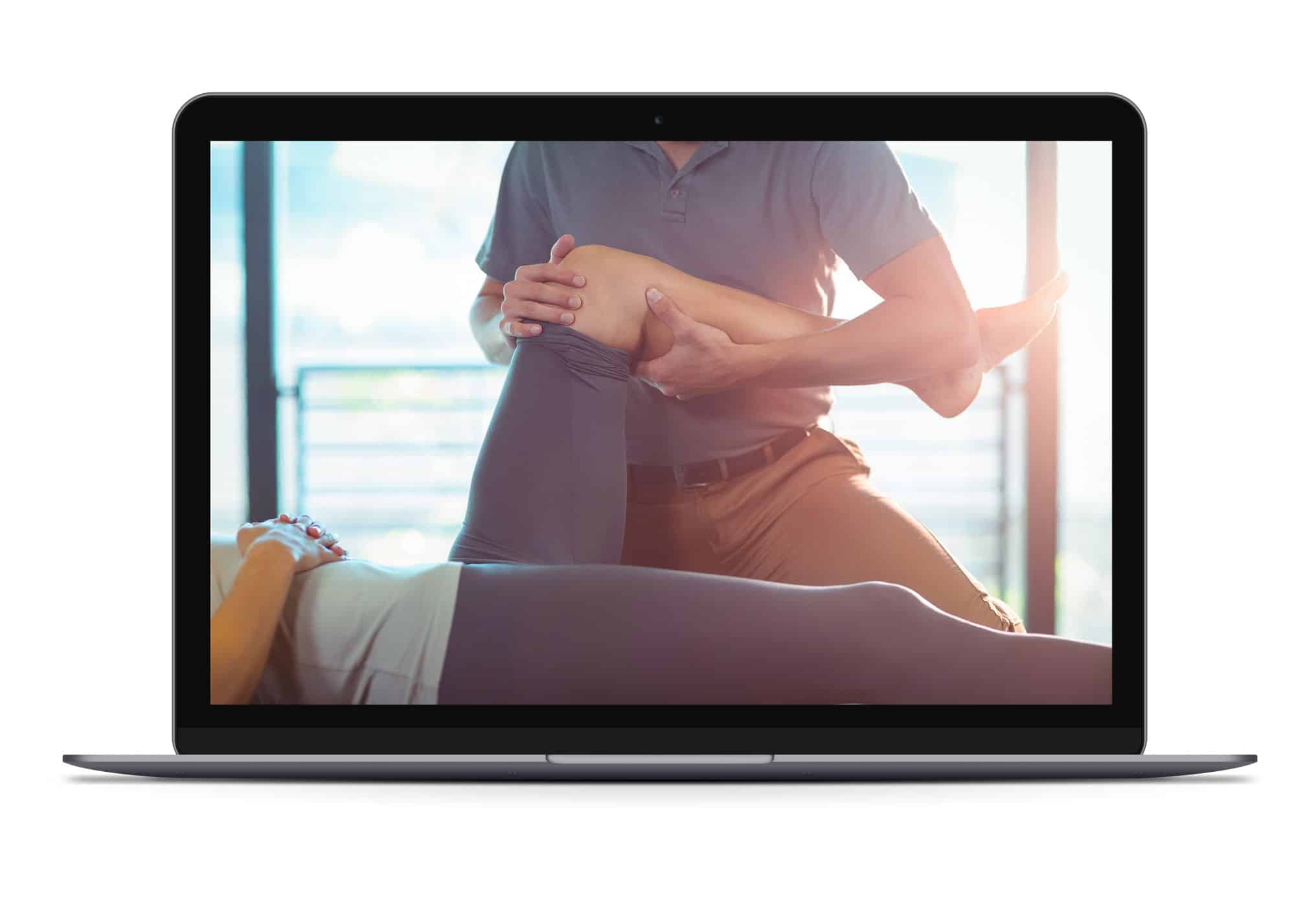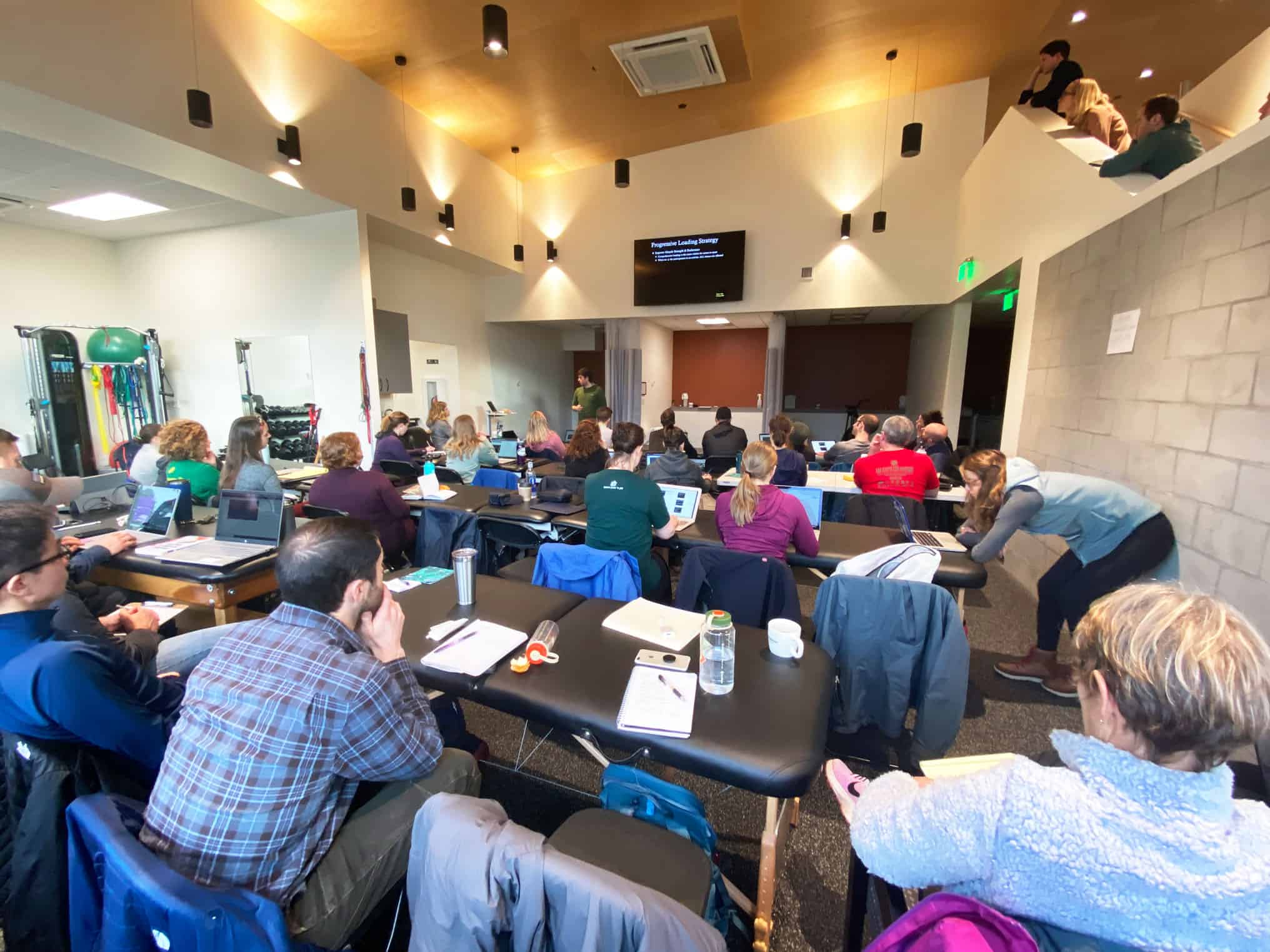
When someone asks me what I do, I relish the opportunity to share my passion by saying,
“I help people take ownership of their musculoskeletal situation(s),” or put more candidly, “Own their shit,” borrowing the eloquent words of my friend Steve Makofsky.
This month, I’m excited to share 5 potent inquiries I regularly use to help people take control of their choices, break free from inaction and passivity regarding behavioral change, and get on the other side of pain and dysfunction.
If you’re a clinician or coach, these questions will prove to be invaluable when seeking to challenge and empower individuals looking to you for help and guidance. They also represent diverse insights from various sources and philosophies. Feel free to spin them as you see fit.
1) Would you mind telling me about yourself and what brings you in today?

While it may appear a routine inquiry, this question is meticulously crafted to establish a foundation of trust and rapport. In my teachings on motivational interviewing, I often liken it to a gentle knock on the door when meeting new neighbors with a newborn—you wouldn’t want to wake the baby!
Creating a safe space fosters authentic dialogue, essential for effective care, while providing a nonjudgmental environment for individuals to engage in movement and regain function. After this question, active listening, validation, summarization, and reframing all play pivotal roles in guiding the ensuing interaction.
2) AWE – “And What Else?”
Beyond one’s musculoskeletal complaints often lies a complex tapestry of interconnected factors shaping an individual’s well-being. Inspired by Michael Bungay Stanier, this deceptively simple question serves as a non-threatening gateway to deeper discussions, unveiling the intricate layers of their concerns. Through this inquiry, individuals are prompted to reflect on the holistic nature of their situation, allowing us to gain insight into their ecosystem and the accompanying allostatic load—a crucial determinant of their journey and outcome. Employing an acronym, such as AWE, adds a memorable touch to this transformative question.
3) What do you want?
Amid external pressures, my aim is to assist individuals in rediscovering and refining their aspirations. Through this inquiry, I seek to empower my clients to realign with their core values and virtues, enabling them to regain control over their lives and navigate towards a path of self-determination.
4) What steps will you take?
The key to change is taking action and I believe in helping people own their path forward. Remember…”Ink it, don’t think it.” By mapping the path forward and crafting a written plan, I instill a profound sense of empowerment and self-reliance.
5) How can I be useful, and what would you like to get out of this session?
As facilitators or perceived agents of change, our responsibility is to foster a collaborative path toward wellness. By listening carefully to my clients and understanding their needs and motivations, I can customize my approach with them to keep them proactively engaged as they work toward their desired outcomes.
Want to dig in more?
Here’s a list of references and suggested reading on the topic:
1. Bungay Stanier MB. The Coaching Habit: Say Less, Ask More & Change the Way You Lead Forever. Box of Crayons Press; 2016.
2. Eger E. The Choice: Embrace the Possible. Scribner; 2017.
3. Fader J. Coaching Athletes to Be Their Best. John Wiley & Sons; 2013.
4. Greenleaf M. Mind styles and the hypnotic induction profile: measure and match to enhance medical treatment. Am J Clin Hypn. 2006 Jul;49(1):41-58.
5. Miciak M, Gross DP, Joyce A. A review of the psychotherapeutic ‘common factors’ model and its application in physical therapy: the need to consider general effects in physical therapy practice. Scand J Caring Sci. 2012 Jun;26(2):394-403.
6. O’Keeffe M, Cullinane P, Hurley J, Leahy I, Bunzli S, O’Sullivan PB, O’Sullivan K. What Influences Patient-Therapist Interactions in Musculoskeletal Physical Therapy? Qualitative Systematic Review and Meta-Synthesis. Phys Ther. 2016 May;96(5):609-22.
7. Schein E. Humble Inquiry: The Gentle Art of Asking Instead of Telling. Berrett-Koehler Publishers; 2013.
8. Is taking a history outmoded? Why doctors should listen to stories instead. Postgrad Med J. 2022 Mar 1;98(1157):236.
I appreciate you taking the time to read this, and I’m eager to hear your thoughts.




